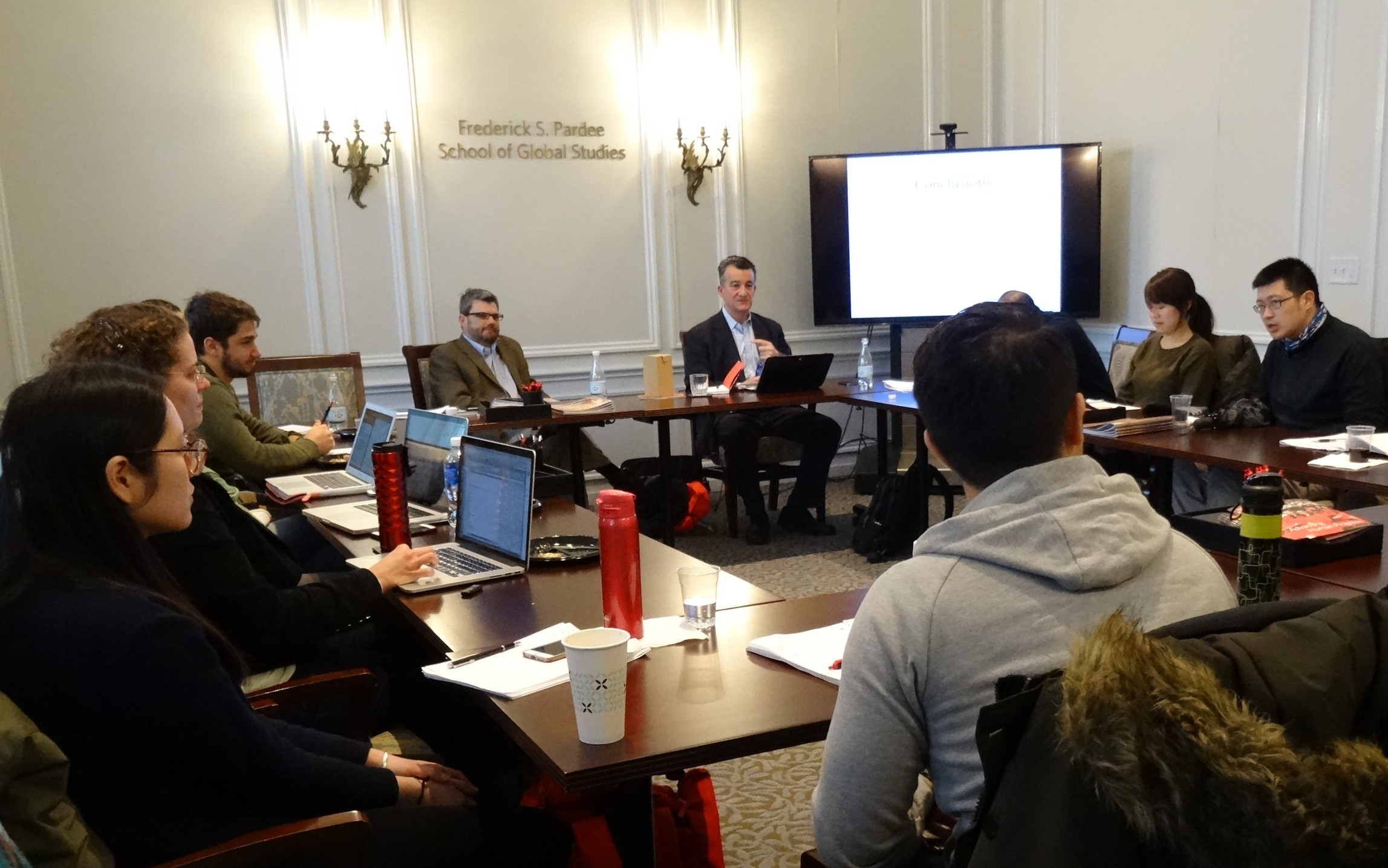Rogerio Studart on the Future of the World Bank
On February 5, 2016, Dr. Rogerio Studart, Senior Visiting Fellow at the Frederick S. Pardee School of Global Studies and the Global Economic Governance Initiative opened the GEGI Spring Seminar Series with the talk “Too Small to Succeed. The World Bank Reform and the 2008 Crisis.”
Studart talked extensively about the World Bank and other international economic institutions, covering the principles behind each institution’s inception and bringing the discussion forward to the 2008 financial crisis, its impact, and the World Bank’s inability to effectively foresee and manage the consequences of the crisis.
I have a very personal view of the crisis… When I got in the World Bank, as I saw the financial crisis evolving… It was quite amazing to see how surprised, how unprepared they were. The crisis has to do with a globalization that was based on inequality that created what I call a financial house of cards. When it collapsed the whole imbalance showed very clearly.
Studart also explained how, at a time when the World Bank was in a process of declining relevance as a development financier and when its development impact was being significantly questioned, the crisis gave the insitution an opportunity to change this process. But causes such as insufficient financial capacity or the missed change for recapitalization in the Voice and Representation reform made it impossible.
The event was attended by several economic experts, political scientists, and students who shared with Studart different perspectives about the crisis, the organization of the mentioned institutions and the economic initiatives to be expected for developing countries such as Brazil.
Rogerio Studart is an internationally renowned economist and development finance expert and former executive director and alternate director at the World Bank (2007-2014) and the Inter-American Development Bank (2003-2007). As a Senior Visiting Fellow at the Pardee School, Dr. Studart will be available to Pardee School and Boston University students during Spring and Fall 2016 for discussion, consultation and advice on research and career questions relating to global development.
The Global Economic Governance Initiative (GEGI) is a research program of the Center for Finance, Law & Policy, the Frederick S. Pardee Center for the Study of the Longer-Range Future, and the Frederick S. Pardee School of Global Studies. It was founded in 2008 to advance policy-relevant knowledge about governance for financial stability, human development, and the environment.
